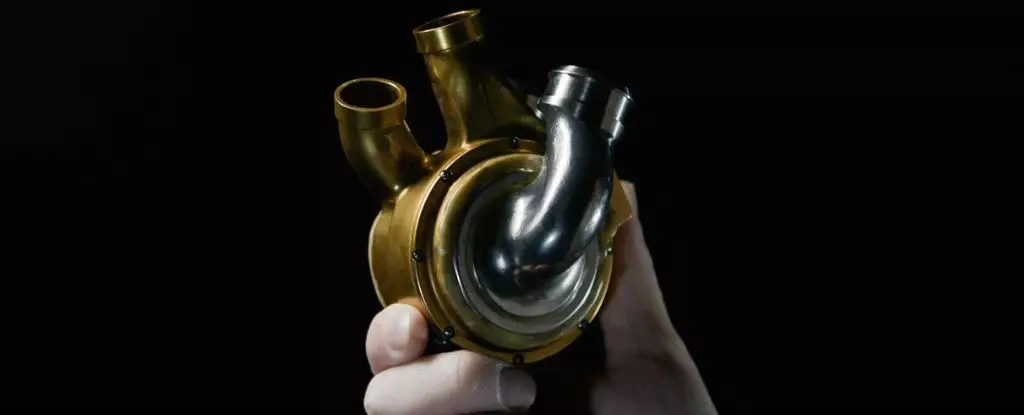In a groundbreaking medical advancement, a 58-year-old man in the United States became the first person to have his failing heart replaced with a revolutionary temporary titanium blood-pumper. This innovative artificial heart, designed by the medical device company BiVACOR, aims to emulate the full function of a natural human heart for as long as possible. Unlike traditional artificial hearts, the BiVACOR Total Artificial Heart (TAH) does not beat like a real heart. However, it is powerful enough to sustain a person during exercise and is compact enough to accommodate both men and women.
The BiVACOR TAH features a double-chamber design and is roughly the size of a human fist, making it both compact and durable. Constructed from titanium, the artificial heart is virtually unbreakable, resistant to corrosion and mechanical wear. The key component of the device is a single magnetically levitating rotor that efficiently pumps blood to the lungs and throughout the body. By eliminating surface contact, friction-related damage is minimized, ensuring the longevity and efficiency of the device.
After a decade of development, numerous design iterations, and extensive animal studies, the BiVACOR artificial heart was successfully implanted in a patient with end-stage heart failure at Baylor St. Luke’s Medical Center at the Texas Heart Institute. The procedure, which was carried out without any complications, demonstrated the effectiveness of the titanium heart for eight days until a donor heart became available. This remarkable achievement highlights the potential of artificial hearts as a life-saving intervention for individuals awaiting heart transplants.
While heart transplants remain the standard treatment for severe heart failure, the scarcity of donor organs poses a significant challenge for many patients. With less than 6,000 heart transplants performed globally each year, artificial hearts offer a vital alternative for individuals at risk of imminent death. The BiVACOR TAH represents a significant improvement over existing technologies, providing a long-term mechanical replacement option that can significantly enhance the quality of life for transplant-eligible patients.
The approval of the BiVACOR artificial heart by the FDA for up to five patients with end-stage heart failure in 2024 marks a major milestone in the field of cardiac medicine. With ongoing advancements in artificial heart technology, the potential for extending the lifespan and improving the outcomes of patients with heart failure is promising. The long-term viability and durability of the BiVACOR TAH, coupled with its ability to sustain patients until a donor heart becomes available, positions it as a revolutionary breakthrough in heart replacement technology.
The development of the BiVACOR Total Artificial Heart represents a paradigm shift in artificial heart design, offering hope to individuals with severe heart failure. As this innovative technology continues to evolve and gain clinical acceptance, it has the potential to transform the landscape of cardiac care and significantly impact the lives of patients in need of life-saving interventions.


Leave a Reply